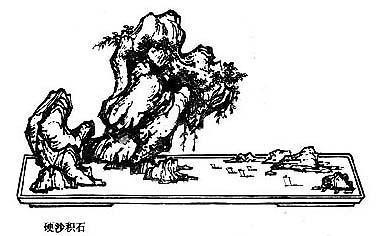詩
經
Shi Jing 
 – Le Canon des Poèmes
– Le Canon des Poèmes
Le plus ancien recueil connu de poésie chinoise, plus de trois cents chansons, odes et hymnes. Tr. Legge (en) et Granet (fr, incomplète).
Shijing I. 9. (112)
Kan-kan go his blows on the sandal trees,
And he places what he hews on the river's bank,
Whose waters flow clear and rippling.
You sow not nor reap ; –
How do you get the produce of those three hundred farms ?
You do not follow the chase ; –
How do we see the badgers hanging up in your court yards ?
O that superior man !
He would not eat the bread of idleness !
Kan-kan go his blows on the wood for his spokes,
And he places it by the side of the river,
Whose waters flow clear and even.
You sow not nor reap ; –
How do you get your three millions of sheaves ?
You do not follow the chase ; –
How do we see the three-year-olds hanging up in your court yards ?
O that superior man !
He would not eat the bread of idleness !
Kan-kan go his blows on the wood for his wheels,
And he places it by the lip of the river,
Whose waters flow clear in rippling circles.
You sow not nor reap ; –
How do you get the paddy for your three hundred round binns ?
You do not follow the chase ; –
How do we see the quails hanging in your court yards ?
O that superior man !
He would not eat the bread of idleness !
Legge 112
And pile the wood on the bank,
By the waters clear and rippling.
They neither sow nor reap;
How then have they three hundred sheaves of corn?
They neither hunt nor chase;
How then do we see badgers hanging in their courtyards?
Ah,those lords
They do not need to work for their food!
Chop, chop, we cut wood for wheel-spokes
And pile it on the shore,
By the waters clear and flowing.
They neither sow nor reap;
How then have they three hundred stacks of corn?
They neither hunt nor chase;
How then do we see bulls hanging in their courtyards?
Ah, those lords
They do not need to work to eat!
Chop, chop, we cut hard wood for wheels
And pile it at the river's brink,
By the waters clear and dimpling.
They neither sow nor reap;
How then have they three hundred ricks of corn?
They neither hunt nor chase;
How then do we see quails hanging in their courtyards?
Ah, those lords
They do not have to work to live!

Le Canon des Poèmes – Shi Jing I. 9. (112) – Chinois on/off – Français/English
Alias Shijing, Shi Jing, Book of Odes, Book of Songs, Classic of Odes, Classic of
Poetry, Livre des Odes, Canon des Poèmes.
Le Canon des Poèmes, Les Entretiens, La Grande Étude, Le Juste Milieu, Les Trois Caractères, Le Livre des Mutations, De la Voie et la Vertu, 300 poèmes Tang, L'Art de la guerre, Trente-six stratagèmes
Bienvenue, aide, notes, introduction, table.
Index – Contact – Haut de page
